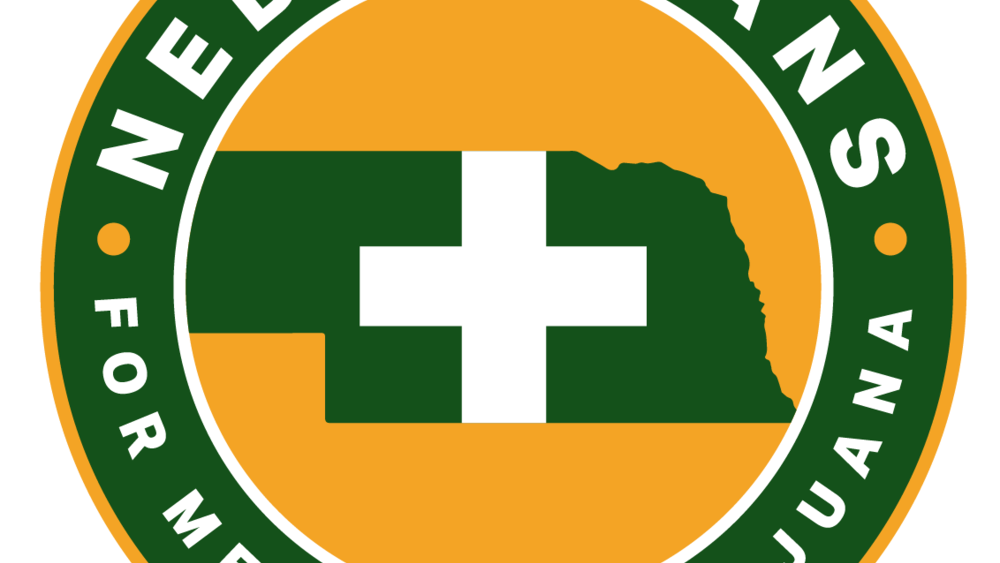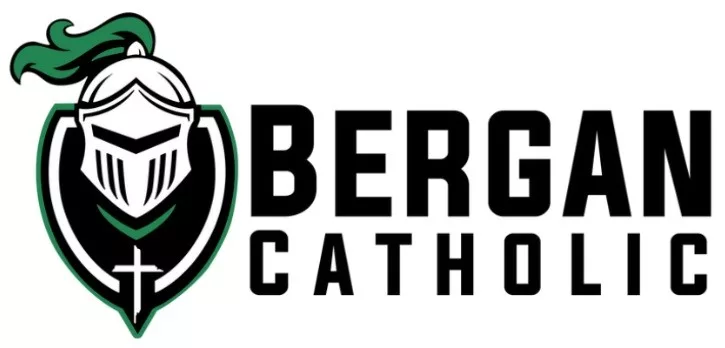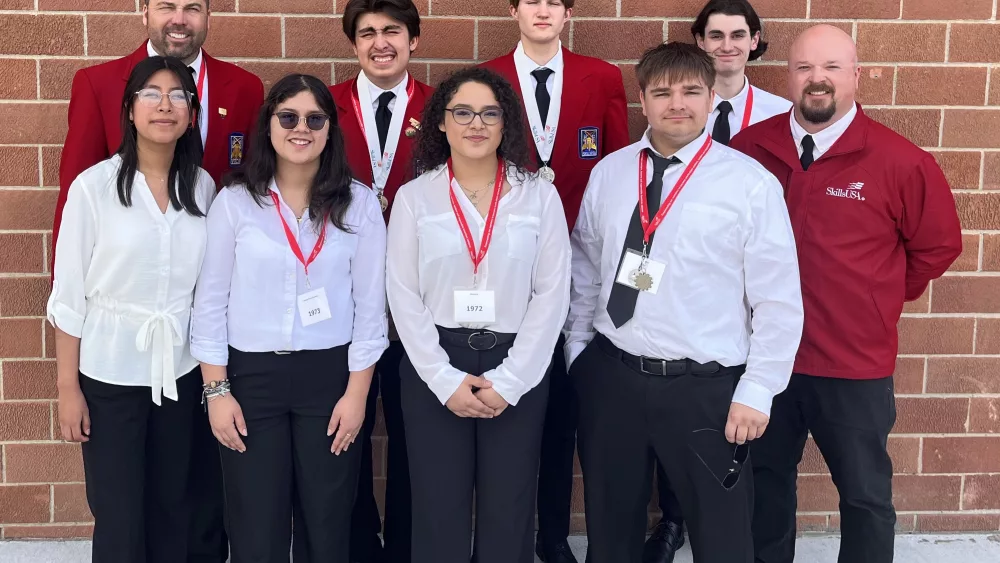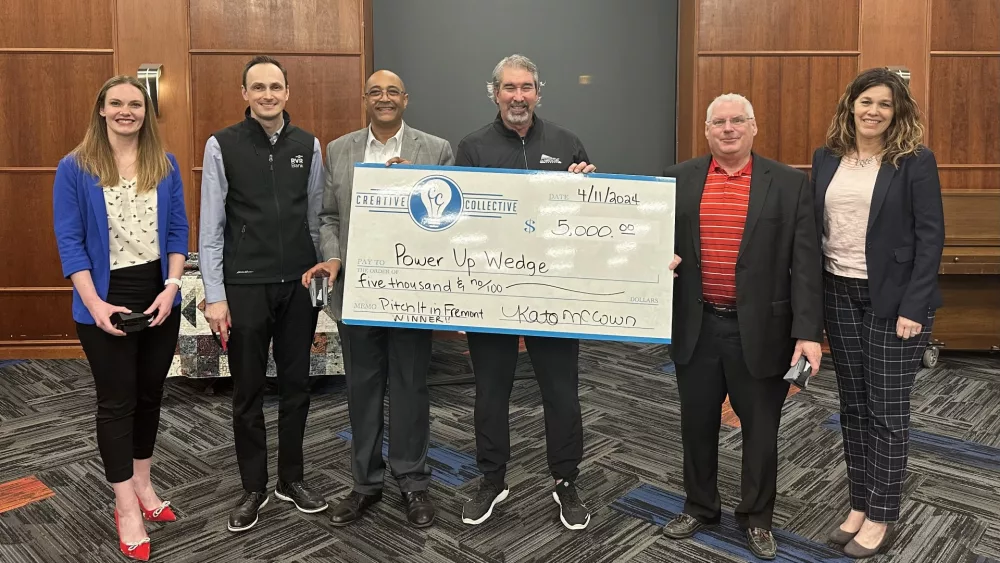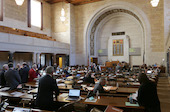
Senators passed several measures this session to expand business opportunities and increased compensation provided to the families of first responders who die in the line of duty.
Business innovation
LB450, sponsored by Omaha Sen. Terrell McKinney, requires the state Department of Economic Development to design an innovation hub, or “iHub,” designation for certain areas in Nebraska.
The bill defines an iHub as a partnership between private nonprofit corporations and at least three partners to stimulate economic development. Partners can include postsecondary educational institutions, financial institutions, nonprofit economic development organizations and inland port authorities, among others.
An iHub must be located within an economic redevelopment area — in which the average unemployment rate is at least 150 percent of the state average and the poverty rate is 20 percent or more for the area’s federal census tract — or an enterprise zone. An enterprise zone is an area where the population has decreased by 10 percent or the average unemployment rate is at least 200 percent of the state average or the poverty rate exceeds 20 percent for the federal census tract.
Among other tasks, DED will provide technical assistance and guidance to entrepreneurs and facilitate partnerships between the member organizations. iHub applications must be submitted to DED by June 1, 2023.
Provisions of Lincoln Sen. Suzanne Geist’s LB1215 are included in the bill. Those provisions state legislative intent to appropriate $5 million annually to a newly created small business assistance program. The program allows certain individuals who want to start a business in Nebraska to apply for a $25,000 grant from DED.
The program also authorizes grants of up to $12,500 for certain small businesses in existence less than five years. Senators passed LB450 on a 45-0 vote.
LB598, introduced in 2021 by Lincoln Sen. Anna Wishart, codifies an existing pandemic relief grant program within the state Department of Economic Development under the Business Innovation Act and makes it available in the future to eligible businesses in the event of a natural disaster, pandemic or other emergency declared by the governor.
To qualify for a grant under the bill, a business must be physically located in Nebraska and have annual revenue of less than $1 million. An eligible business also must demonstrate a significant loss of gross revenue — at least 50 percent over a period of one month or more from the amount of gross revenue received over the same period in the prior year.
Grants will be awarded on a first-come, first-served basis while funds remain. Individual business awards are capped at $12,000.
The bill includes provisions of Wishart’s LB1163 that increase a series of annual caps under the Business Innovation Act. The provisions increase the cap from $2 million to $3 million for the microloan program and from $4 million to $6 million for the following grant programs:
• small business planning;
• financial assistance to small businesses;
• innovation in value-added agriculture; and
• financial assistance to businesses that use the facilities of a public or private college in Nebraska for applied research and development of new products or use intellectual property generated at a public or private college or university in Nebraska.
Also included are provisions of LB1116, introduced by Omaha Sen. Justin Wayne, which increase from $4 million to $5 million the annual cap under the Business Innovation Act for the financial assistance program for creating prototypes.
The provisions also reduce the matching amount to 25 percent for businesses in an economic redevelopment area in a metropolitan class city. Omaha is the state’s only metropolitan class city.
LB598 passed on a 45-0 vote and took effect immediately.
Other measures
In 2021, senators passed a bill that provides a one-time death benefit of $50,000 to the family of a paid or volunteer law enforcement officer, firefighter, correctional officer or government or nonprofit EMS ambulance squad member. The compensation increases each year to an amount equal to the previous year’s compensation increased by the percentage of the consumer price index.
LB717, introduced by Lincoln Sen. Adam Morfeld, increases the monetary compensation to $250,000 for deaths occurring in 2022. The benefit will increase in future years in the same manner as the previous legislation.
The bill passed on a vote of 34-6.
The Rural Workforce Housing Investment Act, passed by the Legislature in 2017, provides grants for the construction of workforce housing in counties with fewer than 100,000 people. Grants are available to nonprofit development organizations in eligible communities.
LB1069, introduced by Gothenburg Sen. Matt Williams, extends the grant program — which had been set to expire at the end of this fiscal year — through FY2026-27. The maximum allowable cost to construct an owner-occupied housing unit is increased from $275,000 to $325,000 and for rental housing units from $200,000 to $250,000.
The bill removes the current $2 million cap that a nonprofit development organization can receive under the program and replaces it with an amount set by the director of the state Department of Economic Development.
Additionally, LB1069 reduces the required local matching grant from a one-to-one match to 50 percent. Projects that receive funds from the National Housing Trust Fund are ineligible for the program.
The bill passed on a 42-4 vote and took effect immediately.
Lawmakers also approved two bills that pay and deny claims against the state.
If an individual sues the state of Nebraska, he or she files a claim with the state claims board. Approved claims exceeding $50,000 must be reviewed by the Legislature.
LB1083, introduced by the Business and Labor Committee, provides for payment of approximately $900,000 in claims against the state and agency write-offs of approximately $9.1 million in uncollectible debts. The bill passed 46-0 and took effect immediately.
LB1084, also introduced by the committee, denies two claims against the state totaling $13,627. The bill passed on a 47-0 vote.
Finally, LB815, introduced by Omaha Sen. Terrell McKinney, would have required public accommodation spaces that already have a publicly accessible bathroom to install at least one diaper changing station in the women’s and men’s bathrooms and in a gender-neutral or family bathroom. Signage indicating the location of a diaper changing station also would have been required under the bill.
An exemption could have been granted by a local permitting entity or building inspector if the installation of a diaper changing station would not be feasible or would result in failure to comply with building regulations.
The bill advanced from committee but was not scheduled for debate.


